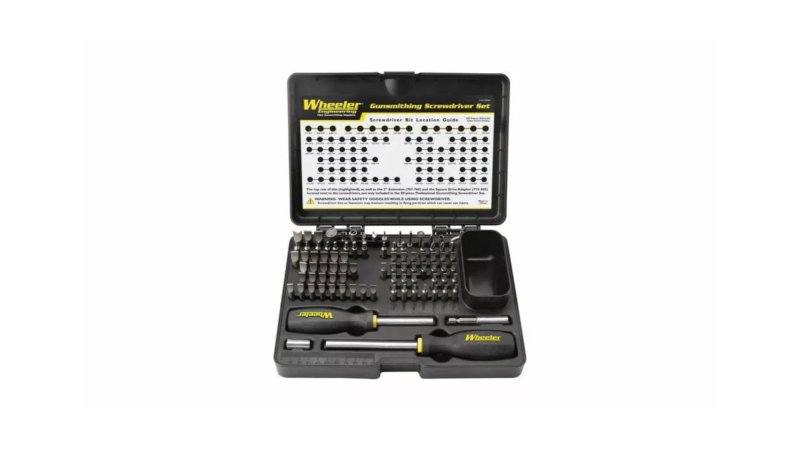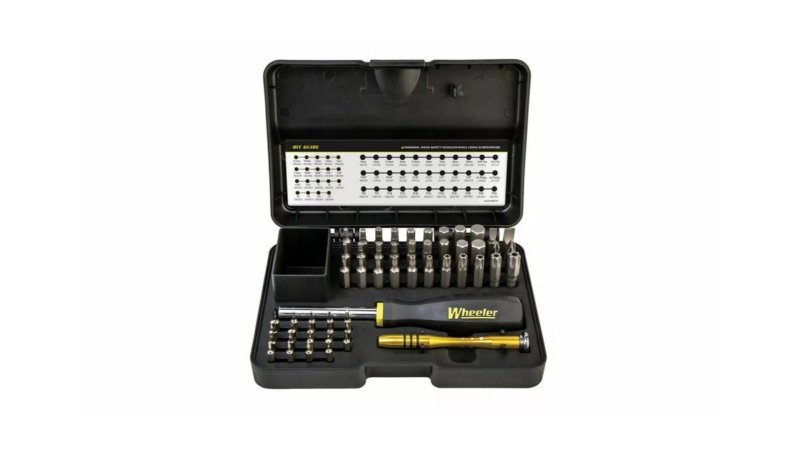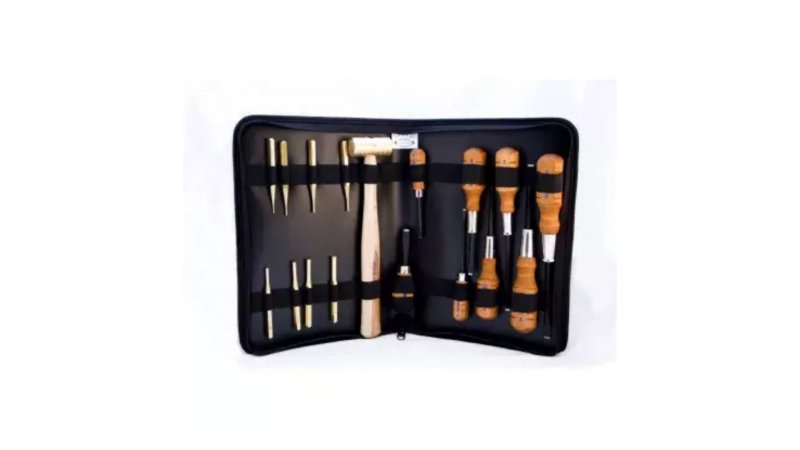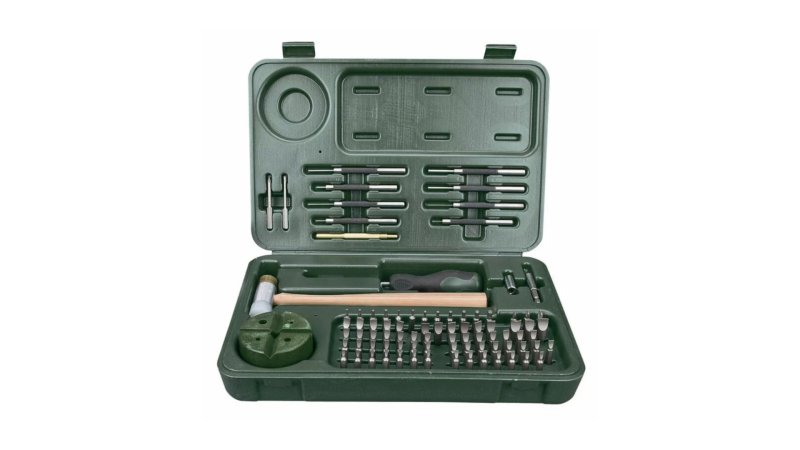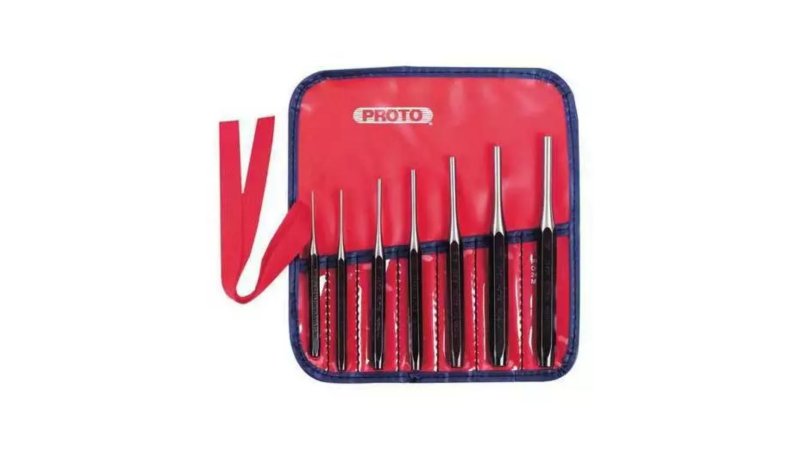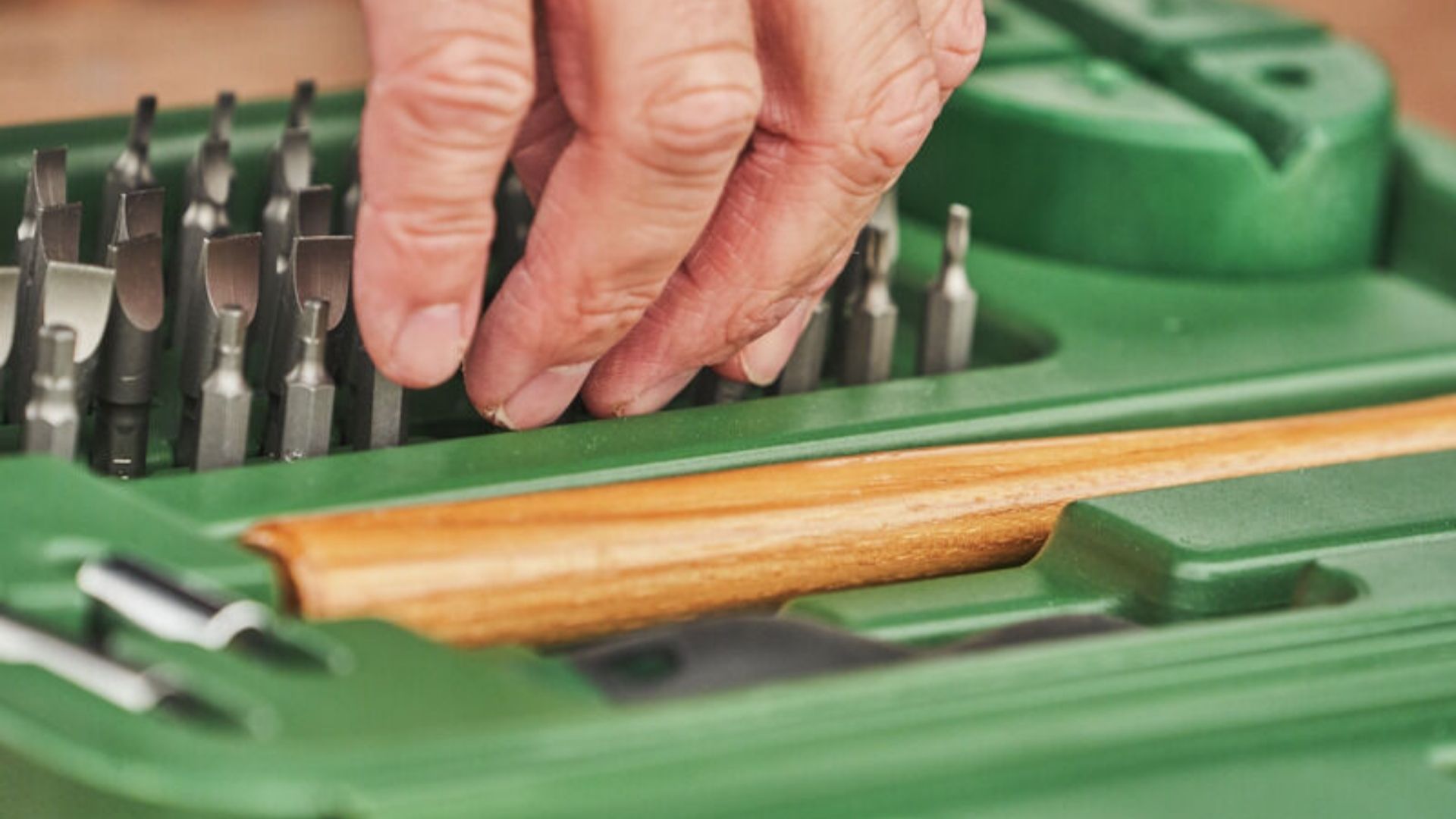

We may earn revenue from the products available on this page and participate in affiliate programs.
Chances are you don’t consider yourself a gunsmith, but sooner or later, you might want to modify or upgrade your guns yourself. Maybe install a rear sight on your handgun, mount Weaver-style scope rings on your rifle, or replace the grips on your antique 1911. If that’s you, you should spend money on a quality set of gunsmithing tools. While you could accomplish the same tasks with whatever you got in your toolbox, you risk damaging your guns and saying a few words you might later regret.
In this guide, we focus on gunsmithing tool sets because unless you’re a professional-level armorer, a general gunsmithing tool set will suit your needs. In the interest of preventing unsightly scratched-up guns and protecting your family’s innocent ears, check out our picks for the best gunsmithing tools on the market and get yourself a quality gunsmithing tool setup.
- Best Overall: Wheeler 89 Piece Professional Gunsmithing Screwdriver Set
- Best Value: Wheeler 55 Piece SAE/Metric Hex and Torx Screwdriver Set
- Honorable Mention: Grace USA 17 Piece Gun Care Tool Set
- Runner-Up: Weaver Deluxe Tool Kit
- Best Punch Set: Proto Drive Pin Punch Set
Methodology
I’ve tinkered with my guns more times than probably necessary. From swapping out Glock sights to installing rails on my ARs to modifying a Remington 870 for home defense and a Remington 1100 for three-gunning, I’ve done just about everything an amateur gunsmith could do.
For this article, my main source of information was my personal experience, and when I didn’t have hands-on experience, I relied on independent reviews such as kempoo.com and survivalgearshack.com.
I considered 10 gunsmithing tool sets of various types, and reviewed the five best. The products that made the cut each filled a common-use/high-demand niche and were also at the intersection of value and quality. For more information about our methodology, check out the Task & Purpose review guidelines.
Best Overall
Wheeler 89 Piece Professional Gunsmithing Screwdriver Set
Pros
- Constructed of durable S2 tool steel
- Bits hollow-ground custom to common gun screws
- 11 specialty bits
Cons
- Punch set is limited and punches aren’t stand-alone
- Not made in USA
Product Specs
- Material: S2 tool steel
- Construction: Detachable hollow-ground bits sized for gun screws
- Country of manufacture: China
- Warranty: Limited lifetime
Best Value
Wheeler 55 Piece SAE/Metric Hex and Torx Screwdriver Set
Pros
- Constructed of durable S2 tool steel
- Bits hollow-ground custom to common gun screws
- Awesome value for the money
Cons
- No specialty bits or punches
- Not made in USA
Product Specs
- Material: S2 tool steel
- Construction: Detachable hollow-ground bits sized for gun screws
- Country of manufacture: China
- Warranty: Limited lifetime
Honorable Mention
Grace USA 17 Piece Gun Care Tool Set
Pros
- 100% made in the USA.
- One-piece screwdrivers are more rigid and precise
- Driver blades machined to extremely precise tolerances and hardened to 52-56 RHC
- Drivers backed by Grace’s Forever Guarantee not to twist or chip
Cons
- The most expensive price per tool reviewed
- Basic set (no specialty bits, etc.)
- Brass punches are very soft (won’t mar, but bend easily)
Product Specs
- Material: High carbon steel, RHN 52-56
- Construction: Premium wood-handled drivers with hollow-ground blades
- Country of manufacture: 100% USA
- Warranty: “Forever guarantee”
Runner-Up
Weaver Deluxe Tool Kit
Pros
- Comprehensive set of flat bits
- Quality steel punch set
- Weaver’s excellent reputation for their scope rings
Cons
- No specialty bits
- Priced higher than competitors
Product Specs
- Material: Weaver’s site does not state material, construction methods, or country of manufacture
- Warranty: Limited lifetime
Best Punch Set
Proto Drive Pin Punch Set
Pros
- One-piece punch construction
- Proto is well-known in heavy industry for quality
- Solid warranty and good customer service
Cons
- Somewhat more expensive than competitors
Product Specs
- Material: Proto’s site does not state material, construction methods, or country of manufacture
- Warranty: Limited lifetime
Our verdict on gunsmithing tools
- The Wheeler 89 Piece Professional Gunsmithing Screwdriver Set will meet your needs at a good price.
- If you want a good set of hex and Torx bits for a screamingly good value, the Wheeler 55 Piece SAE/Metric Hex and Torque Screwdriver Set will fill that role. It’s also an excellent addition to any gunsmith load-out.
- The Grace USA 17 Piece Gun Care Tool Set is for the gunsmith who refuses to compromise on quality and only buys tools 100 percent made in the USA.
What to consider when buying the gunsmithing tools
The most important tools in a gunsmith’s kit are screwdrivers, followed closely by a good set of punches, a good brass hammer, a gun vise, and a bench block. Lastly, if you want to work on AR-15s, there are several specialty tools that will make your gun-modding life much easier.
Types of gunsmithing tools
Screwdrivers
While it may not be obvious, gunsmithing screwdrivers and driver bits are not the same. Gunsmithing flat blade drivers are the same width from the tip to the start of the shaft rather than tapered toward the tip like a typical utility driver. Not tapering toward the tip increases the surface area in contact with the screw and decreases chances of stripping or breaking the screw. Also, good kits have lots of flat bit widths and thicknesses custom-sized to common gun screws. Look for a kit made of a tough metal which is then hardened. While flat bits are the most commonly used, a good kit also has a set of Phillips, Torx, and hex bits.
Punches
At first thought, pin punches seem pretty straight-forward and self-explanatory, but that first thought is very, very wrong. A thorough but not exhaustive list of pin punch varieties includes drive, starter, drift, roll, roll pin starter, and center.
The most common punches used in gunsmithing are drive pin punches and roll pin punches, with the occasional need for a starter or drift pin punch to get a stubborn pin moving. Further, punches typically come in three materials: steel (most common), brass (soft and bends easily but won’t mar surfaces), and poly (avoid these).
Low-quality punches are worse than having no punch at all. They’ll bend and break at the slightest provocation, leaving your pin stuck in place and your job stalled. A good set of punches will cost around $50.
Types of punches
- Drive pin punches are the same diameter at the tip as they are at the start of the handle and are used to push a pin all the way through a hole.
- Roll pin punches have a little round head with a recess all the way around the convex portion to hold and index the hollow roll pin while driving it in.
- Roll pin starter punches hold the entire hollow roll pin inside the head with only a small portion of the pin protruding. This stabilizes the roll pin while you start it into the hole (roll pins are oversized and meant to “squish” a bit inside the hole).
- Drift punches are tapered from the handle to the tip, making them much stronger and good for starting stuck pins moving.
Hammers
A good gunsmithing hammer will have both a brass and a nylon face as neither will mar the finish on your gun. These hammers are generally lighter than a utility hammer because gunsmithing work is typically more delicate than framing a house. The one exception is starting a stuck pin — you’ll want a heavier hammer for that.
Gun vise
A gun vise should be fairly heavy-duty, as you need it to support the entire weight of a full-sized rifle while you potentially apply copious torque to a stuck barrel, for example.
Bench block
Made mostly for handgun assembly/disassembly, these handy blocks have grooves and holes designed to aid in removing and inserting pins, springs, and other components. The block should be very sturdy and made of a non-marring material (most are poly of one type or another).
AR-15 specialty tools
There are several very handy tools to have on hand if you plan to work on an AR-style rifle.
- An action block adapts the shape of the AR upper to a gun vise, allowing you to clamp the upper in the vise tightly without damaging the gun.
- An AR combo wrench makes removing barrel nuts, muzzle devices, castle nuts, and buttstocks much easier.
- Cleaning ARs can be a real pain (that star chamber, am I right?), but an AR cleaning tool makes cleaning the most obnoxious parts of an AR a little less tedious.
Tips & tricks
- I’ll go ahead and kick a dead horse here: Do not buy a low-quality set of punches — they will make your gunsmithing life miserable.
- Strongly consider buying a set of drive pin, roll pin, and drift punches. Punches are not one-type-fits-all types of tools.
- Do not try to move a stuck pin with a drive or roll punch — you’ll very likely break them. Get a drift or starter punch instead.
- Look for screwdrivers that are specific to gunsmithing. The flat blades will not be tapered toward the point, and you’ll want a myriad of blade thicknesses and widths for max surface area contact on different-sized gun screws.
- Make sure your screwdrivers either state that they’re made with quality, hardened steel or have a well-known reputation for not breaking or twisting.
- Make sure your tools have a good warranty.
- If you’ll be working on AR-15s a lot, get an action block, combo wrench, and cleaning tool specifically for ARs.
FAQs about gunsmithing tools
You’ve got questions, Task & Purpose has answers.
Q: What starting tools does a home gunsmith need?
A: Gunsmithing-specific screwdrivers, quality pin punches, a gunsmithing hammer, and strongly consider getting a gun vise and bench block.
Q: Can gunsmiths handle gun restoration work?
A: Talk to your local gunsmith. Not all gunsmiths will be capable of detailed restoration work.
Q: Is it legal to be a gunsmith?
A: Yes. While there are no laws regulating gunsmiths, do make sure your gunsmith has attended some kind of formal training (typically a six-month technical college course).
